One of the reasons I wanted to live like the pioneers was due to Pa Ingalls and The Little House books. He cared for his family and had an adventurous spirit.
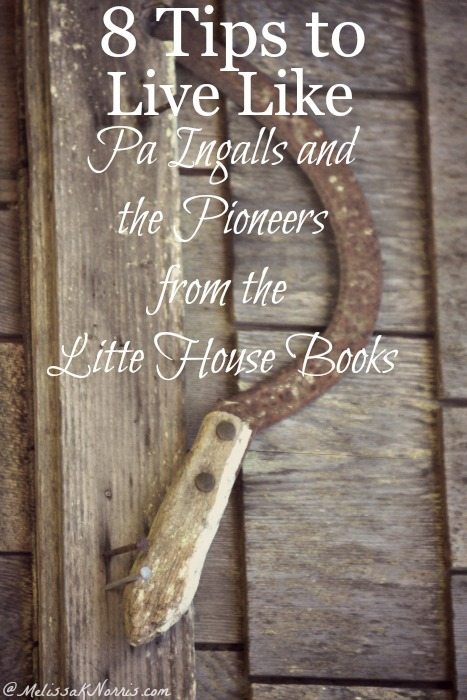
The Little House on the Prairie® is probably in part responsible for almost all of us modern homesteaders. The idea of being able to live off the land, being self-sufficient, and returning to simpler ways and times holds a certain nostalgia for most.
🍞 Struggling With Sourdough?
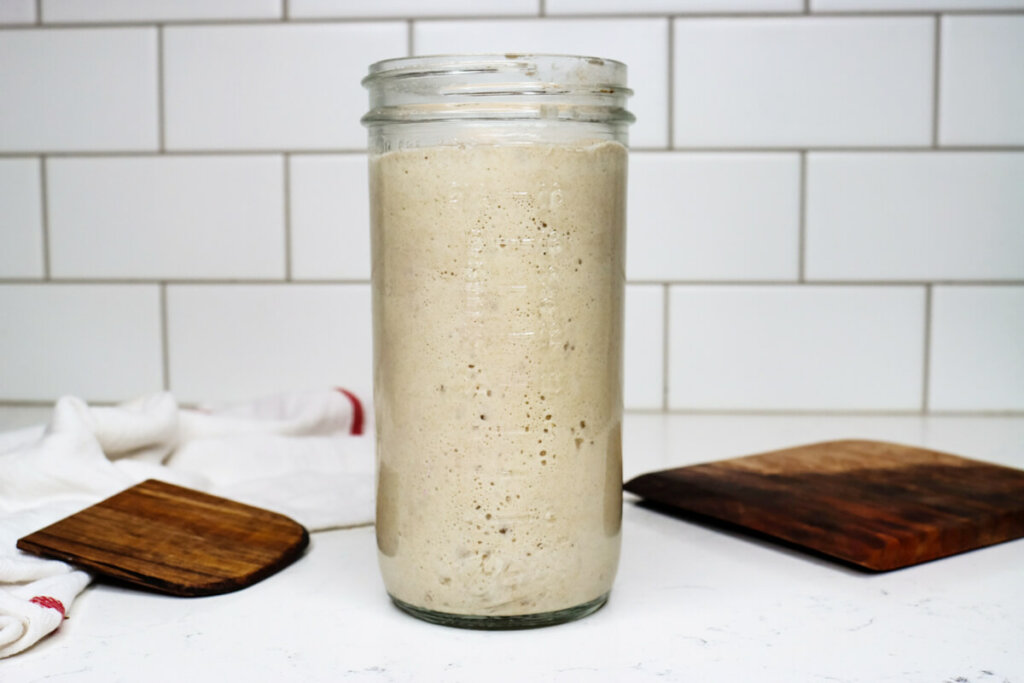
If your starter won’t take off, your loaves are dense and hard, or sourdough just flat-out overwhelms you…
👉 I’ll show you how to fix all of it.
Join my FREE workshop and learn how to make a bubbly, active starter—the right way, from Day One.
Truth of the matter is this homesteading and pioneering today is hard work. People like to say we romanticize the time and that may be true. But I believe taking what we can from that time and applying it to our modern lives is well worth the trade off. I’ve got a feeling if you’re reading this post, you probably agree with me.
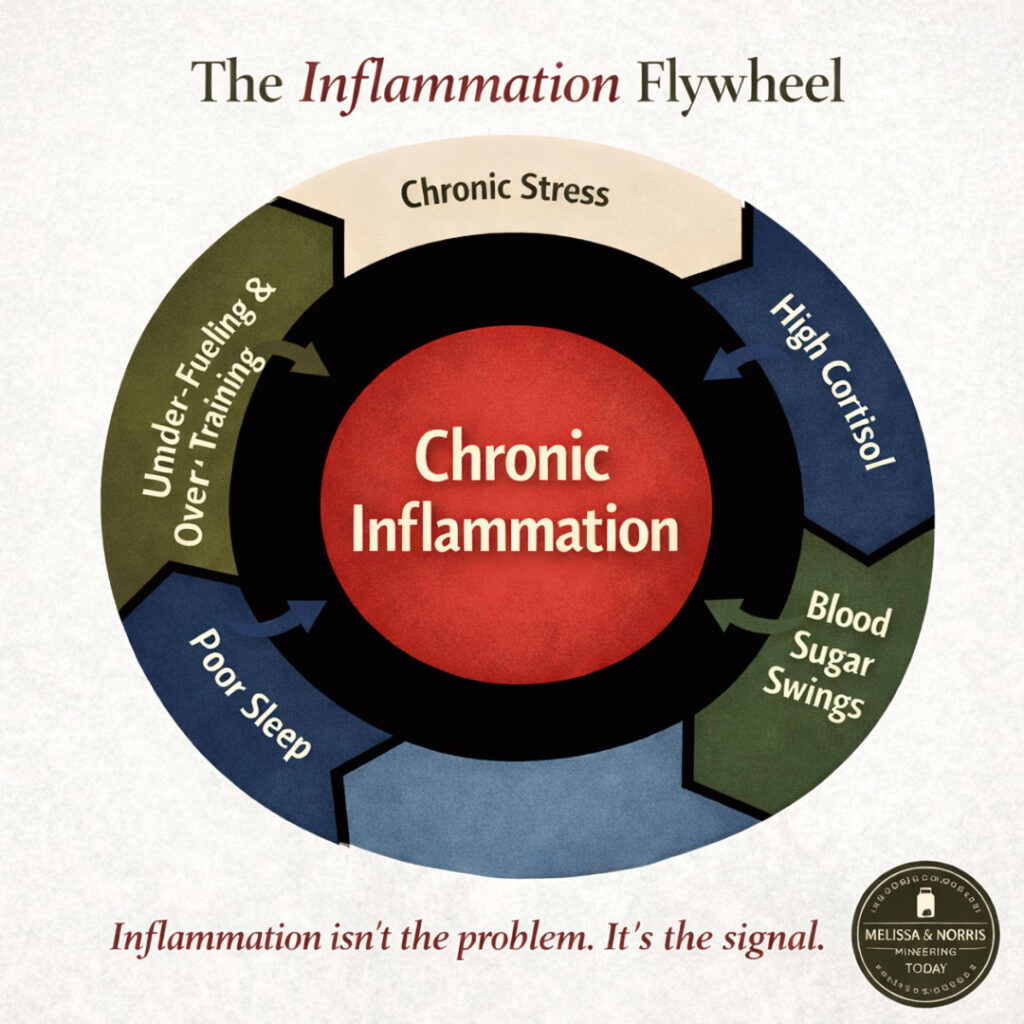
The Hidden Cycle Keeping You Inflamed
If you’ve been feeling puffy, tired, achy, or wired-but-tired, this two-page guide will help you understand what may be happening behind the scenes — even if you’re eating “healthy.”
Download the Inflammation Flywheel Guide and learn:
- Where to start so you don’t feel overwhelmed
- The 5 most common drivers that keep inflammation switched on
- Why blood sugar swings, stress, and poor sleep feed each other
There’s a reason, despite the work, the sweat, money, and failures we keep coming back for more. We know the value in learning a new skill, in seeing the fruits in our labor, and not always focusing on worldly things.
Did you miss part 1? Check it out here–> 8 Ways to Live Like Little House on the Prairie®
Table of Contents[Hide][Show]
8 Tips to Live Like the Pioneers
1. Faith. A Bible was often times the only book a family had. It was used often and all of a families records of births, weddings, and death were recorded inside. The Bible’s words of wisdom and God’s love were what kept many a family going. When crops failed and hardships arose, their faith was buoyed by the everlasting promises of Jesus. The real treasure isn’t in how much money we have, how well off we are, or our comfort level, it’s in leaning on Jesus and seeing ourselves and this world through His eyes.
2. Be able to start a fire anywhere. A fire can be the difference between life and death. Fire was and is important for cooking, keeping warm, and providing light. The flickering flames of a fire also brings comfort and can help keep wild animals at bay. Matches can get wet and run out. Having an easy way to start a fire anywhere is key. This fire strike showers an amazing amount of sparks and heat, almost instantly kindling a flame–> Exotac PolySTRIKER XL Firestarter (We purchased one of these for my son’s birthday this year and I was impressed with the way it threw tons of sparks, a lot more than our previous striker)
New to cooking on an open fire or without power? Got ya covered in 11 Ways to Cook Off-Grid
3. Knives. Craftsmen and tradesman were in high demand. People had to make what they needed or find someone who could. You can do quite a lot with a good knife. Knives can whittle creating a spear for fishing, carve out utensils, cutting (obvious, right?), chopping, self-defense, and to skin out your supper. This knife is less than $10 –> Tac Force TF-705 plus I’m girly enough to get excited about the different color options.
4. Ax or hatchet. Being able to clear a trail or brush and also cut firewood and kindling was a must for any pioneer family. You can also use smaller hatchets as a hammer if needed. As always, common sense and safe handling are a must. The pioneers knew better than us no hospital or ER was there if they got in trouble. Another benefit is no need to go to the gym. If you’ve ever swung an ax, chopped, carried, and stacked firewood, you know how toned your arms will get in a hurry. This hatchet is made in the USA since 1923 and the head and shaft are forged from one piece of steel for extra strength –> Estwing Sportsman’s Hatchet
5. Tool care. My husband and dad are a stickler for this one. If you want your tools to work when you need them too, then you’d better take care of them. Don’t leave them out in the weather, do proper maintenance, and buy the best you can afford at the time. A dull knife blade makes for twice as long on the job. Keeping your knives sharp will make any job easier–> Tri-6 3 Stone Sharpener
6. Cured or dried fuel. It’s very important to have firewood that isn’t freshly cut or green. It won’t burn well, will smoke, making it harder to cook or sit near, plus it doesn’t put off very much heat. The pioneer’s knew the importance of putting up their firewood before they needed it and searching out proper fuel. I’ve never had to burn dried buffalo dung like the Ingall’s did, but we have cords of wood curing for the next winter in advance.
7. Hunting and fishing. While on the move across the frontier, the pioneers couldn’t always bring along enough livestock to feed themselves, but hunting and fishing could be done along the way. Learning how to hunt and fish are still important skills towards feeding your family. My son and I will be taking hunter’s safety course together this spring. One of our favorite wild game meals is fresh grouse and venison. Growing up, my mother fondly remembers bear mince meat pie as her favorite meal my great-grandmother cooked. More of that nature in –> 7 Great Depression Era Tips to Stretch Your Food Budget
8. Foraging. While you might not always get an animal when hunting, you can almost always find something to forage. The seasons will depend upon what you can forage, but most times of the year there is always something edible to be found. Please take care and be responsible when foraging, know what is safe, where you can forage according to law, stay away from areas sprayed with pesticides or chemicals, and if unsure, don’t consume. Dandelion greens can be used in a salad or cooked, the blossoms can be made into dandelion jelly, and you can also roast the roots. Stinging nettles can be made into tea, used in soups, or sauteed with some butter. We love the health benefits of mushrooms and go foraging for morel mushrooms any chance we get during the season. You want to miss this moral and asparagus quiche recipe!
Having a field guide for foraging is very important, as in could be life or death. You need an in depth guide to safely forage edibles–> The Forager’s Harvest: A Guide to Identifying, Harvesting, and Preparing Wild Edible Plants
Resources for Living Like the Pioneers
- Being able to start a fire almost instantly without trying to throw a spark for hours–> Exotac PolySTRIKER XL Firestarter
- A good knife that won’t blow the budget–> Tac Force TF-705
- A hatchet for clearing the way, building a shelter, and keeping the firewood in stock–> Estwing Sportsman’s Hatchet
- Stone sharpener to keep knife blades sharp–> Tri-6 3 Stone Sharpener
- In depth guide to help you forage safely–> The Forager’s Harvest: A Guide to Identifying, Harvesting, and Preparing Wild Edible Plants
- Everyone should have these basic skills set and use them in their home–> 8 Ways to Live Like Little House on the Prairie®
Learn how to raise all your own meat, preserve the harvest, and more in the Pioneering Today Academy
Being able to preserve food at home was something every pioneer did and this FREE guide is yours –> The Ultimate Home Food Preservation Guide
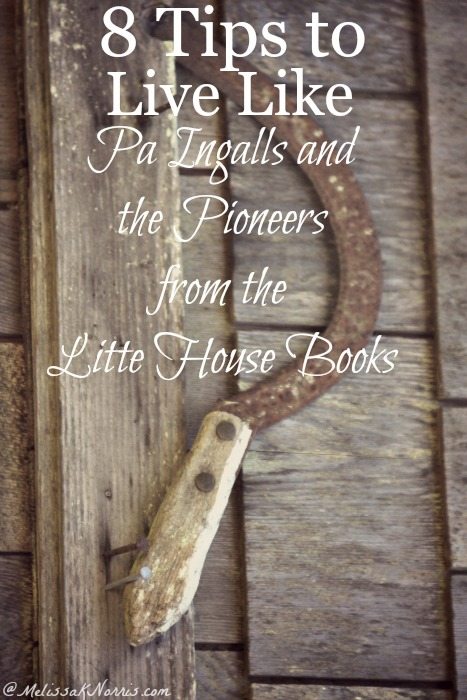

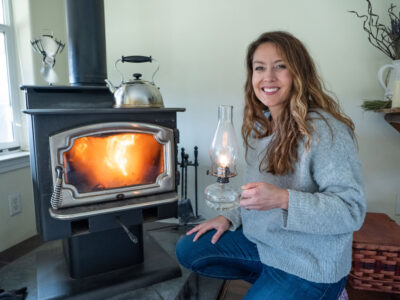
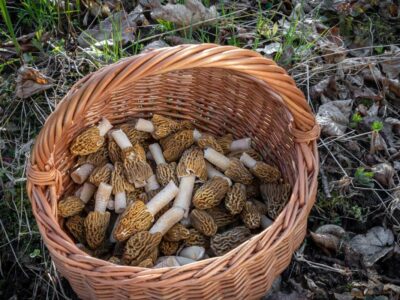
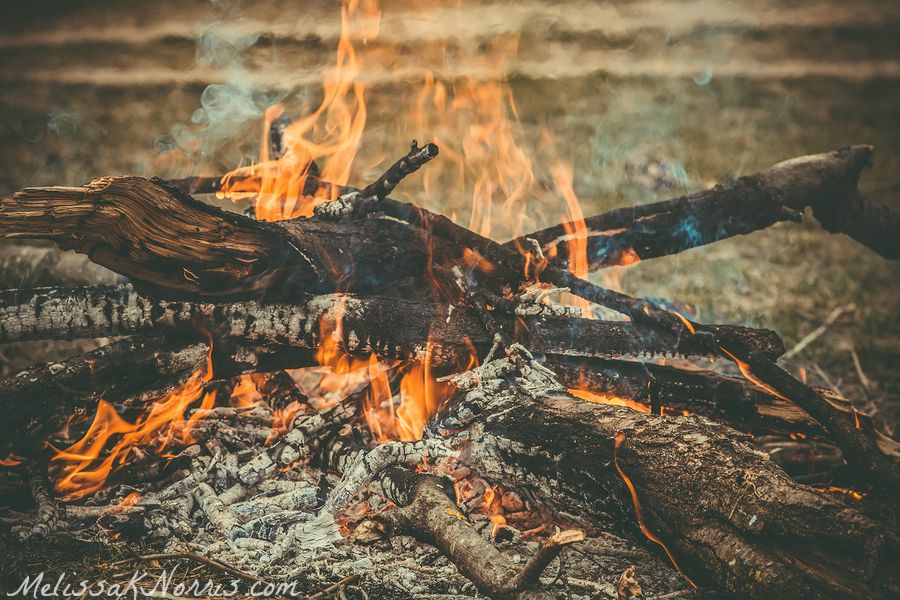
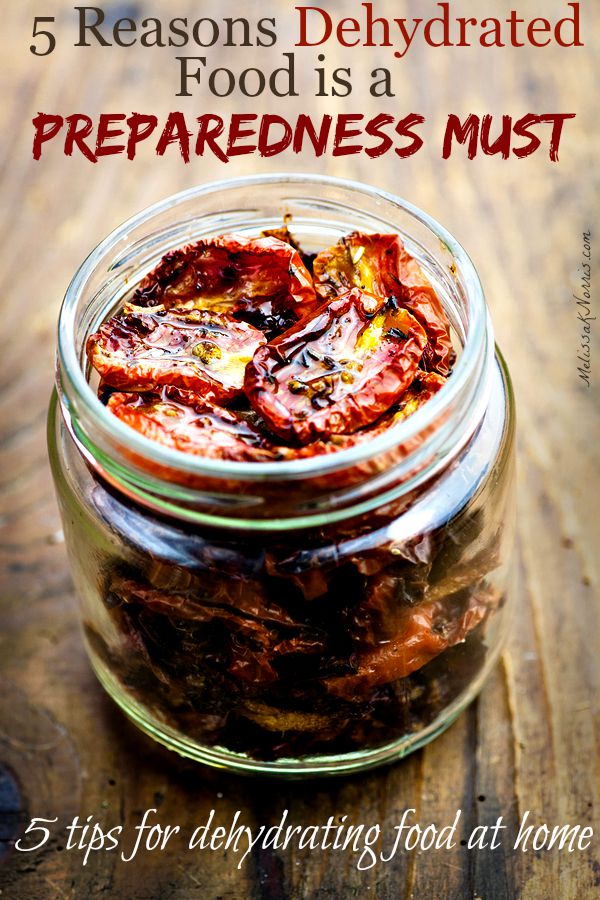

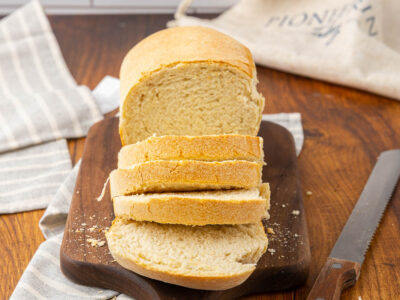

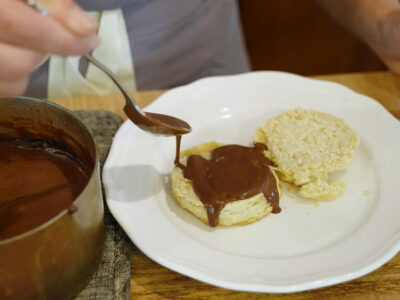
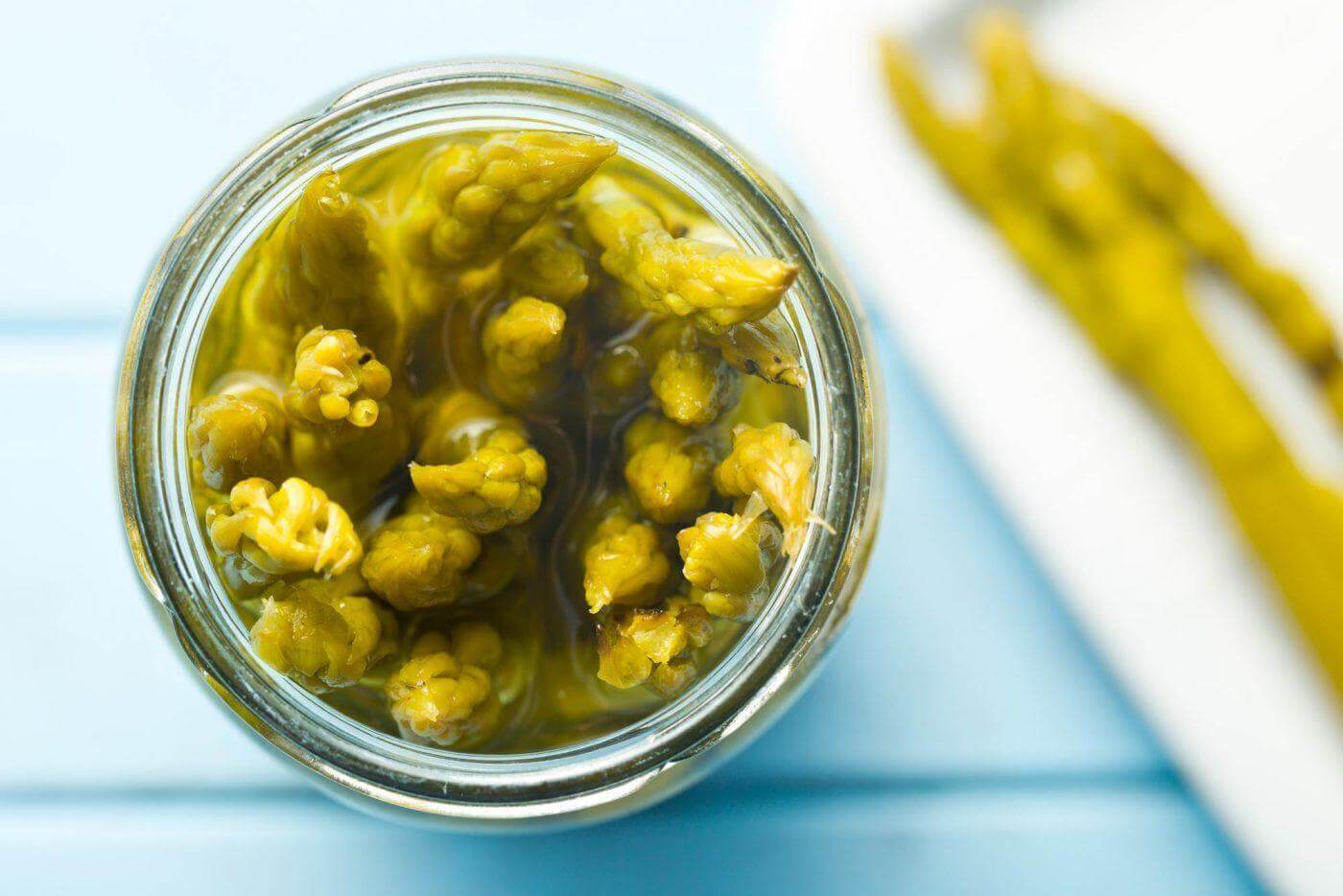

This is a great guide to living more like the pioneers! One key aspect that really helped them thrive was mastering food preservation techniques beyond just canning—fermentation, root cellaring, and drying were essential for keeping food available year-round. Another often-overlooked skill was maximizing resourcefulness; pioneers repurposed everything, from fabric scraps for quilts to wood ash for making soap. Additionally, self-sufficiency wasn’t just about growing food—it also meant knowing how to mend clothing, build and repair tools, and make herbal remedies from local plants. The pioneer lifestyle was built on resilience, adaptability, and community, making these skills just as relevant today for those looking to become more self-reliant!
Hi, Melissa! I’ve gone down the rabbit hole after listening to your podcast episode ‘5 Rules for Foraging Wild Edibles’. I would love to have your Seasonal Wild Edibles Harvesting Guide, but the link takes me to an error page. Is that guide no longer available? Thanks, Tonya
I can’t seem to find the knife sharpener you mentioned. The Tri 63 Stone Sharpener. Is this still sold? Thanks, Sandra
Sandra,
Sorry, the link was incorrect. Yes, it’s still sold and here’s the proper link http://amzn.to/1o3eU9a
[…] 8 Tips to Live Like the Pioneers […]
[…] Read more on Melissa K Norris. […]
[…] Read more on Melissa K Norris. […]
Melissa, What a charming article. You have captured the essence of why we do what we do. Great tips too. Thanks for sharing with us. Shared FB, G+, Pinterest.
[…] More Little House Living tips? Check out 8 Tips to Live Like Pa Ingalls and the Pioneers from the Little House Books. […]